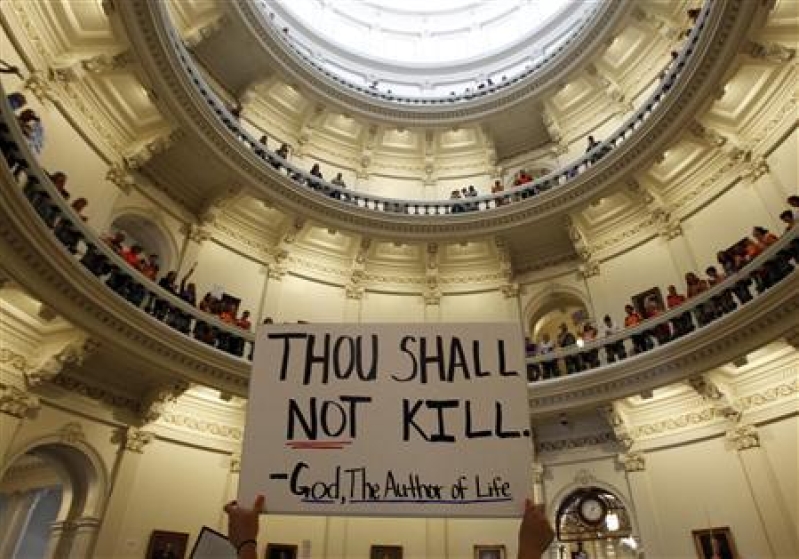
Christians are forced to violate either their religious beliefs or the government's rules, due to the current U.S. Department of Health and Human Services (HHS) abortion/contraception mandate, Southern Baptist entities told U.S. Supreme Court judges through a friend-of-the-court brief filed Monday.
The brief was issued by the Ethics & Religious Liberty Commission (ERLC), the International Mission Board (IMB) and Southern Baptist Theological Seminary. Southern Baptist's president R. Albert Mohler Jr. urged the high court to rule that the "controversial" federal regulation infringes on religious freedom, reports Baptist Press.
Released in support of the 2010 health-care reform law, the abortion/contraception mandate requires employers to provide for their workers contraceptives, intrauterine devices and drugs, such as Plan B, the "morning-after" pill, that can potentially cause abortions. Employers who do not abide can face fines.
Supreme Court justices consolidated seven cases involving a variety of religious, nonprofit organizations that have challenged the requirement but lost at the appeals court level. Among the challengers are several Southern Baptist institutions, including GuideStone Financial Resources, reports Baptist Press. GuideStone is exempt from the mandate and accompanying fines, but it serves ministries that face hefty penalties for failure to obey the rule.
Oral arguments for the combined case, which is consolidated under the title Zubik v. Burwell, are not yet scheduled but are thought to be likely to be heard during March or April. The court is expected to issue its opinion before its term ends, which normally is in late June.
ERLC President Russell Moore said this combined case will be "pivotal in maintaining soul freedom for all people."
The "issue" as framed in Supreme Court language is: "Whether the HHS contraceptive-coverage mandate and its 'accommodation' violate the 1993 Religious Freedom Restoration Act by forcing religious nonprofits to act in violation of their sincerely held religious beliefs, when the government has not proven that this compulsion is the least restrictive means of advancing any compelling interest."
Zubik v. Burwell was consolidated with:
- Priests for Life v. Burwell
- Southern Nazarene University v. Burwell
- Geneva College v. Burwell
- Roman Catholic Archbishop of Washington v. Burwell
- East Texas Baptist University v. Burwell
- Little Sisters of the Poor Home for the Aged v. Burwell
These cases are among 56 involving religious, nonprofit organizations that object to the rule issued in 2011 by HHS. HHS provided an exemption to the rule for churches and their auxiliaries but did not extend it to non-church-related, nonprofit organizations that object. It issued an accommodation for religious nonprofits, but many of those ministries or institutions have found it unacceptable. They contend it still makes them complicit in covering contraceptives and potentially abortion-causing drugs cites Baptist Press.






